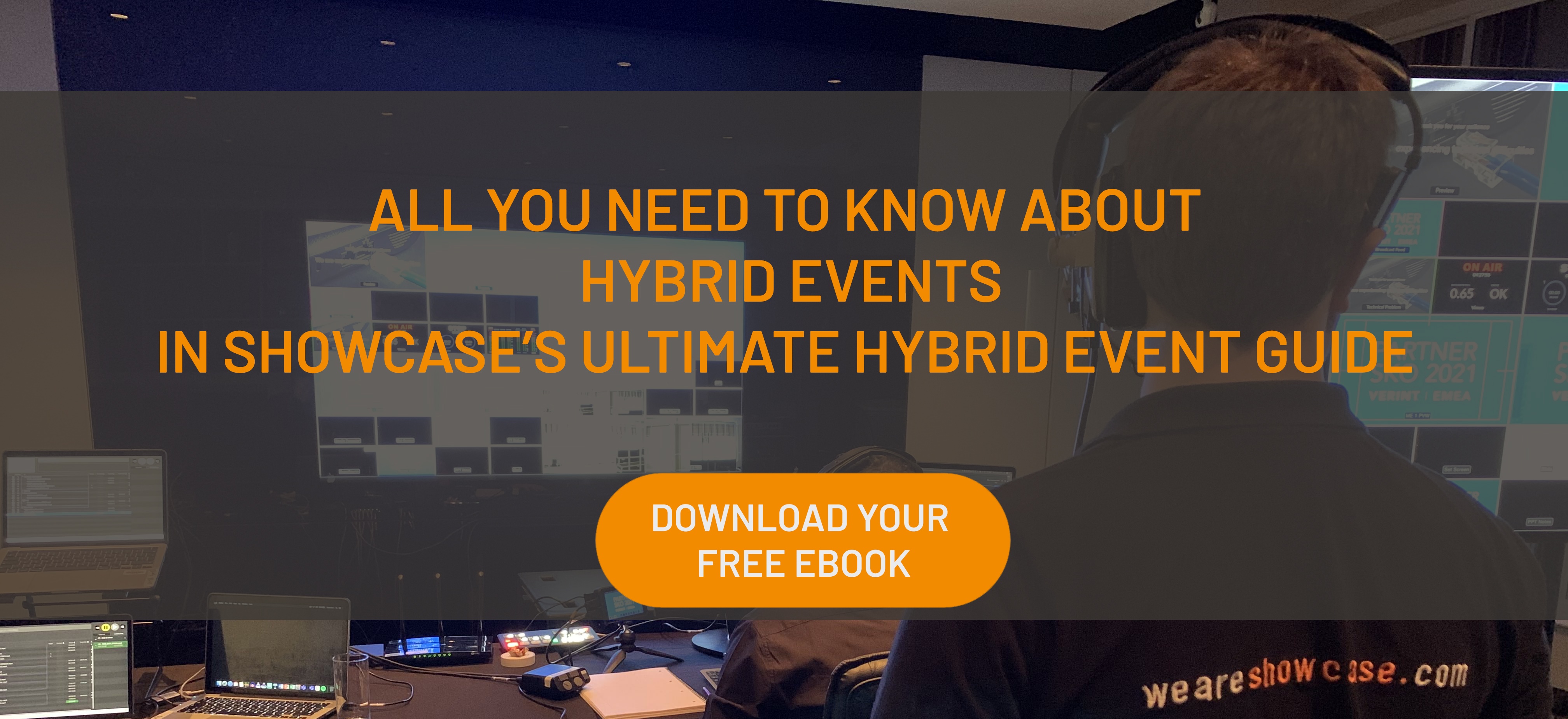Event Directors (EDs) are rarely told anything new. I mean, you’re the people that design and build events, so what tips could this post tell you that event directors don’t already know? And of course, online events aren’t new. Although they are now more popular than ever, by now you’ve got experience running them solely online and/or in hybrid formats.
Seven Killer Tips Event Directors Need for Online Events
But the seven things EDs need to know about hosting virtual events could teach you or your team members a thing or two, or possibly reinforce things you were unsure of or are second-guessing. So why not grab a quick coffee or tea and sit down to read this five-minute inspirational insight list; Seven Killer Tips Event Directors Need for Online Events.
Online event technology
To begin with, let’s look at the available digital event technology and discuss what’s hot and what’s not in today’s event management.
Great tech vs cheap tech
We’ve all been there. The lights go up, the speaker introduces themselves and they press for the first slide. And nothing happens.
In the virtual/hybrid world, the 30 seconds it takes for your tech to fix the problem can lose you your audience. How many of us have just switched to Amazon Prime when Netflix is playing up? The same rationale applies here.
What’s annoying but forgivable at a physical event is a gamechanger at a digital one. Understand the granular functionality you will need for your virtual/hybrid event, the backup plan (to the backup plan), and then ensure your tech platform can host a virtual event with no hiccups.
Off-the-shelf solutions have limited functionality and whilst investing in something more bespoke may cost more, the ROI in customer experience and better chances of keeping the audience engaged will be worth it.
Behind a great customer journey and experience
- Where are you streaming your content to?
- How is your customer accessing the content?
- Is it behind a paywall or a registration form?
- Is it live video?
- Is it pre recorded Video on Demand (VOD)? (We would suggest both).
- Where will that be hosted?
- Does that platform offer the capacity to host the amount of content you’re planning?
- Can it handle the traffic in a best-case scenario?
Whilst we pose more and more questions in this section, we are trying to prompt you to consider all avenues as you plan your approach for hosting successful virtual events. Feel free to visit our earlier article, Virtual events made easy, link at the footer of this post.
Think TV over Theatre
As EDs, you’re used to building theatre and you’re bloody great at it. In the digital/hybrid world, you’ve got a smaller stage to create a drama-esque event experience. From studio and presenter to script-writing, background branding and timings, this will take some fresh thinking.
Everything must be condensed and faster-paced. You’ll need a TV-savvy MC to keep the energy up and the content flowing fast for top-notch virtual experiences. You also have the opportunity to bring the audience into the studio with you through the use of live polls/questions and social media snippets.
So how can you encourage interaction this way?
Online event planning and budgeting
Planning your digital event is intense and revisions are more commonplace than not. But don’t feel like the design, planning and creativity has to rest solely on your shoulders. Event production companies can always offer insight and ideas that you haven’t considered, including help with event marketing.
Physical events vs digital events
The biggest mistake you can make is trying to 100% replicate your physical event in the virtual or hybrid world. The benefit of a live, in-person event is your captive audience, which completely flies out the window in the digital alternative for event planners. You’re competing against Zoom calls, screaming children and that growing pile of laundry, dishes, and meal preparation.
This will impact everything from the sponsorship offerings you can sell to the length and timing of content – even the entertainment you can offer.
Focus on your virtual event audience
Put yourself in your attendees’ shoes. As mentioned, your virtual audience is different from the physical. So map your event’s user experience from this perspective.
If the CFO who is your target attendee may be in meetings most of the day when would be the best time to build your content?
Could you break it up throughout the day?
We recommend keeping sessions under 30min so they can easily be fit in a meeting slot, 25 would be perfect as a rule.

Targeting the right virtual audience is key
Exploration is hard in the virtual/hybrid event world. Whereas attendees might meander through the halls on-site, dipping into one session and then another as it takes their fancy, this won’t often be the case digitally. They’ll have planned their agenda and will pop in for the sessions and virtual conferences they really want to see. To make this more feasible, group streams and sessions together by target audience type.
For instance, your CFO content always happens over lunch hours, whereas your CEO insights are scheduled for the morning. It’s this type of attention to detail that yields the best results.
Virtual event sponsorship and revenue
Monetising your online event is always the biggest headache. With so many challenges you don’t typically have to deal with in a live event situation, it’s difficult to find a balance between ad-spamming your audience and meeting sponsorship requirements.
Rethinking the SPEX model
Inevitably, when you ask sponsors what they want, they will tell you leads, leads, data, more leads. In a virtual/hybrid world, this is much harder to deliver. You don’t have the advantage of
a) a captive audience
b) an exhibition space where attendees can be enticed by free doughnuts and t-shirts.
Virtually exhibitions have seen less uptake as a result, so where can you build value for your sponsors?
Be prepared: there will be less inventory and less revenue but there is gold in these hills from a brand and thought leadership perspective. Branding of specific content formats, introductions to sessions or moderating slots are all up for grabs, as are virtual roundtables on particular topics. And don’t forget ad slots. Consumers are used to adverts, why shouldn’t you sell these too?
Summary
As we mentioned in our opening statement, event directors are the brains behind the event and we are sure that you would agree with what we’ve shared today, even if some of it is familiar to you.
Our aim was to provoke thought, and if you like, a conversation with us to help you further your understanding of what’s possible in this progressive world on online and virtual events. Feel free to send us your ideas in the comments below, we would be happy to discuss them with you at any time.
In closing, I am sure there are more things to discuss and we have, although in more depth and on a different article. Check out our deep dive into virtual and hybrid events in a previous article and please do reach out, we are happy to help.


